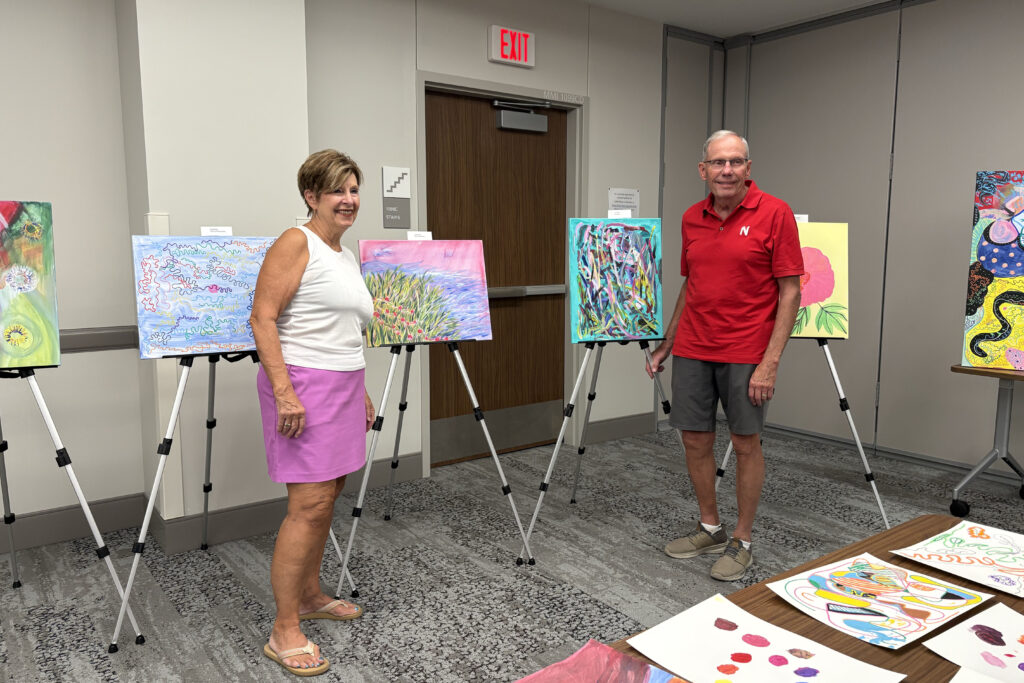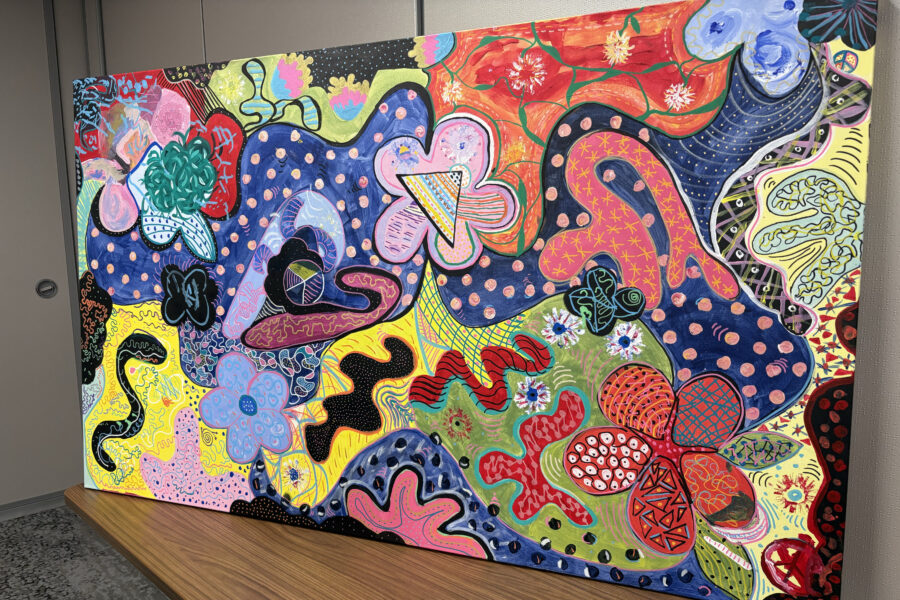Jon Reid often gets frustrated when he can’t get the right words out.
But Reid, who has a progressive condition that impacts his speech, was able to work on his communication skills alongside his wife during a 10-week art program held at the Munroe-Meyer Institute.
The experience was made more special since the workshop was facilitated by the couple’s daughter, Kim (Reid) Darling.
The program, Creative Arts and Aging, had about a dozen participants with various cognitive communication disorders.
The budding artists started with making marks and mixing colors before taking to their canvases. Participants followed Darling’s simple, concrete direction. They also communicated with each other by asking for materials, naming their artwork and talking about their projects, said Carol Gaebler, a speech-language pathologist at MMI.

In addition to individual pieces, participants also worked on a collaborative painting that will eventually hang at MMI.
By the second and third weeks, participants became more comfortable, and chatter came more easily.
“People were talking and laughing more,” Gaebler said. “They were relaxed and not in their head about the words they wanted to say. Conversations were organic.”
This was the second time the Reids have participated in an art workshop.
Jon Reid has been taking speech services at MMI for about three years. He was diagnosed with primary progressive aphasia, which affects his ability to find words.
During one-on-one sessions with Gaebler, Reid works on strategies for when he can’t find the right words or put them in the correct order. Those strategies include using gestures or drawings and pulling from a word bank, Gaebler said. Reid also uses a speech generating device that has pre-programmed buttons for his high communication needs.
In addition to sessions with Gaebler, Reid also benefits from group activities, his wife Linda Reid said.
He’s part of a primary progressive aphasia communication group that meets in summer and fall for eight consecutive weeks. Each week is themed, with conversational topics such as the Olympics, for example. Participants then split into smaller groups and have discussions.
Linda Reid attended speech therapy sessions of her own at MMI after suffering a stroke.
The art workshop challenged them to “go outside the lines,” she said. “It created an increased opportunity for communication. I was so wonderfully pleased to have this opportunity.”
Darling, with the Nebraska Arts Council, is a working artist. But she enjoys community-based projects like the MMI workshop.
“It’s important to advocate and give back through programming,” Darling said. “I think when people relax and are in this meditative role, they can find a place of restorative practice within art making.”
